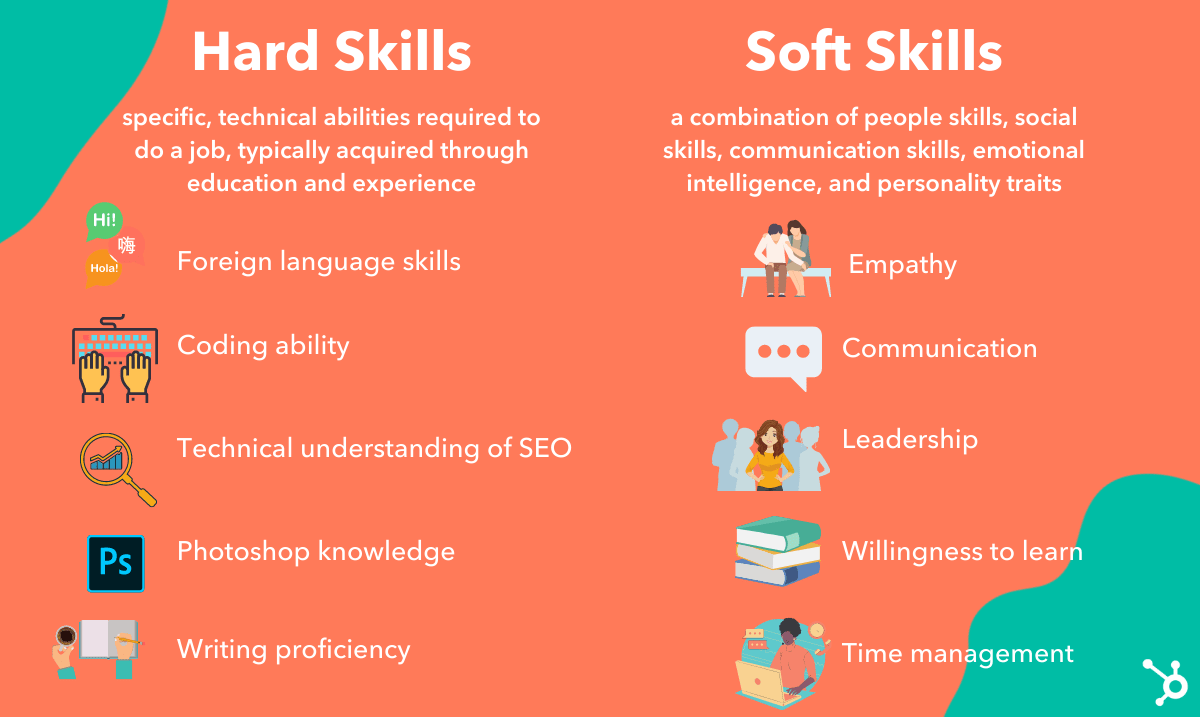As I began reading about soft versus hard skills, I became intrigued by their differences and their relation to job qualifications. Many employers are saying soft skills are more important than hard skills. In fact, 92% of employers say soft skills are crucial in determining whether they hire candidates. (CareerBuilder)
So what is the difference between soft skills and hard skills? An article by HubSpot details that soft skills are a combination of people skills, communication skills, social skills, and personality traits that make it easy to get along and work well with others.
While stating, hard skills are specific technical abilities required to do a job and something that one would gain through education and experience. It’s helpful to look at both of these in relation to each other, especially when writing a resume or preparing for an interview. (Hubspot)
“Unfortunately, some people believe that soft skills aren’t that important. However, almost every employer I’ve ever talked to about this disagrees. In a world where job roles are changing rapidly, soft skills will be one of the few constants […]” – Chris Jones, Chief Executive at City & Guilds via backingsoftskills.co.uk
Resume writing
When crafting a resume, include soft skills that pertain to the job you are applying for. You will also want to find ways to detail your soft and hard skills on your resume.
As for your hard skills, you can create a section on your resume titled “Skills” and list all relevant skills.
For example, it could look something like:
Skills
Cardiac Surgery | Maintain Electronic Medical Records | Monitor Vital Signs | Patient and Family Education | Patient Safety | Central Line Management
As for soft skills, you should detail these in sentence form within the bullet points you have under each job experience.
For example:
- Use effective communication and leadership skills to work with the interdisciplinary team to produce desired patient outcomes post-surgery.
Interview Skills
While discussing your education and experience in an interview, the hard skills you have developed naturally become apparent. Soft skills require more explanation and application.
An excellent method for talking about your soft skills is the STAR method. Using this, you can talk about a
Situation
Task
Action
Result
When discussing your soft skills in an interview, you will answer questions showing your behavioral responses.
For example, during an interview, you are asked about an experience in which you faced a difficult situation when a client changes their mind about something without discussing it with you first (Indeed). Using the STAR method, you might begin by talking about the situation, tasks you performed, and how your soft skills helped you take action to gain the desired result.
Your response could be:
I had a first-hand experience with this, and since I enjoy connecting with people, I immediately called our client so we could discuss their need for a last-minute shift change. After our discussion, I understood the need for the schedule change and was able to communicate details to our employees timely.
“Take advantage of every opportunity to practice your communication skills so that when important occasions arise, you will have the gift, the style, the sharpness, the clarity, and the emotions to affect other people.” – Jim Rohn, entrepreneur




